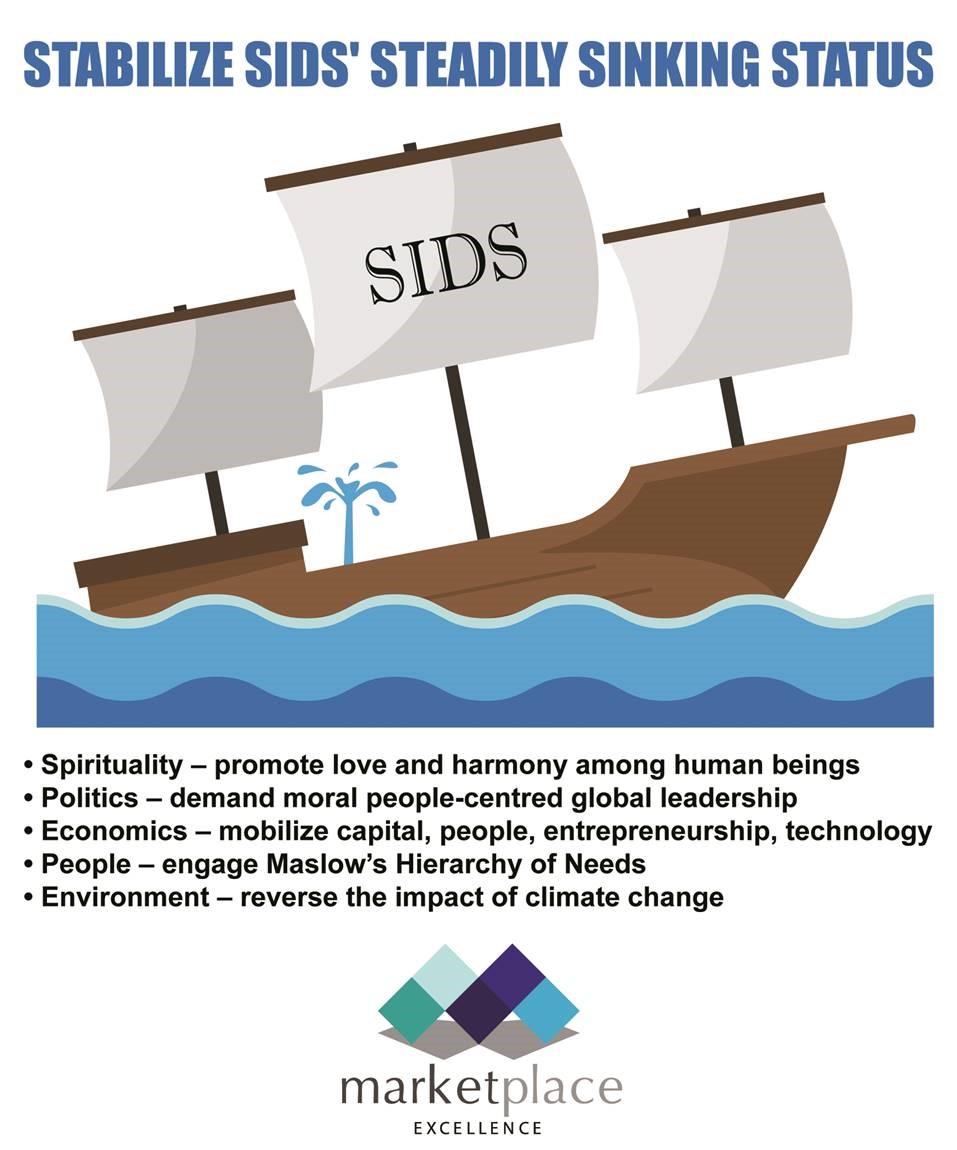“Now all glory to God, who is able, through his mighty power at work within us, to accomplish infinitely more than we might ask or think.” – Ephesians 3:20
In a column I penned just under a year ago, entitled “CARIBBEAN SUSTAINABILITY” (https://nothingbeatsbusiness.com/2019/07/caribbean-sustainability-basil-springer-column-monday-on-july-29-2019/), I posed the question “When are we going to open the Caribbean parachute?”
Since then, our communities and those of other small island developing states (SIDS) and coastal communities have been further smitten (directly and indirectly) by a global pandemic, racial inequality protests and pockets of decaying morality in global leadership. These negatively impact the sustainability of SIDS, with no idea when these issues will be resolved. SIDS ships “have sprung a leak” and are steadily sinking.
If we are to stabilize the sinking ships, we must diligently repair the leaks by developing a multi-faceted strategy which collectively focusses on spirituality, politics, economics, people, and the physical environment.
Spirituality – we human beings on planet Earth are in this together, notwithstanding our multicultural, multiethnic, multireligious, multiculinary, multigenre (musical) and multilingual diversity. We are all sentient and spiritual beings attempting to master an earthly experience. We are intrinsically born equal, but greed and power have historically divided us. We shall all benefit by pursuing the goals of love, peace and harmony.
Politics – the political systems which govern the nations of this world span a left-wing to right-wing spectrum. The left-wing focuses on freedom, equality, fraternity, human rights, progress, reform and internationalism. The right-wing focuses on authority, hierarchy, order, duty, tradition and nationalism. The challenge is to move towards moral people-centred global leadership, which would engender equality, dissipate corruption, protect the vulnerable, and ultimately nurture a win-win situation.
Economics – how do we mobilize the essential elements of economic growth – capital, the workforce, entrepreneurship and technology?
The current economic climate has resulted in massive borrowing for which our grandchildren will be burdened to repay. Why not be imaginative and create government incentives to mobilize and protect the massive private sector savings to get the economy going again – a win-win situation?
We need to match workforce demand with workforce supply to increase productivity.
Let entrepreneurship fly with the innovative Shepherding model, instead of letting it wallow in the mud of traditional systems with a global 90 percent startup failure rate in the first five years. Incidentally, globally, less than four percent of all children die before reaching the age of five. This is a credit to the maturity of the public health systems. We need an entrepreneurship preventive health care system.
STEM is an acronym for the fields of science, technology, engineering and mathematics. Why not support the initiatives of STEM-related programs because too few college students are pursuing degrees in these fields.
People – we must be more diligent in following the hygiene, mask and distancing public health COVID-19 protocols, especially now that borders are being reopened. Remember Maslow’s Hierarchy of Needs: physiological, safety, love and belonging, esteem, and self-actualization, which influence future human behaviour.
Climate change – we need to continually look at means of reversing the impact of climate change, which spawns drought, flooding and hurricanes. The drive to replace fossil fuels by renewables must be accelerated.
Finally, the United Nations Charter, which is 75 years old, sets out four main purposes: maintaining worldwide peace and security, developing relations among nations, fostering cooperation between nations in order to solve economic, social, cultural or humanitarian international problems. These are more relevant than ever today for SIDS to survive and thrive.

